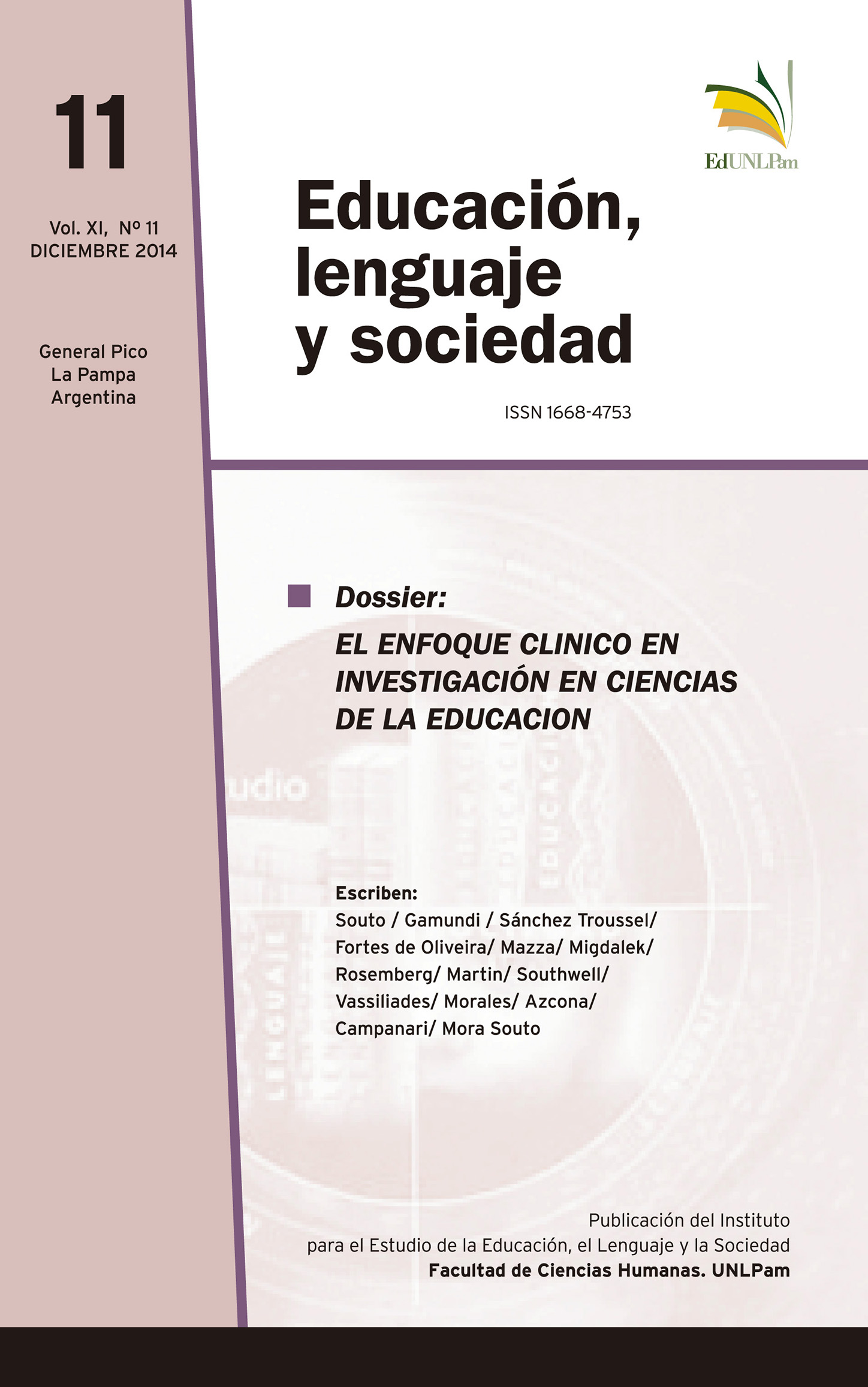Convencional games: a multimodal analysis of teacher’s regulation of play situation
Keywords:
Childhood education, Childhood games, Teaching class non verbal communicationAbstract
Within the framework of the sociocultural perspective on human learning and development (Elkonin, 1980; Vigotsky, 2009) the game is considered as the leading activity of childhood, on this paper. In family contexts as well as in the kindergarten, several studies (Bruner, 1986; Fimreite, Flem y Gudmundsdottir, 1999; Haight, 1997; Howe, Petrakos, Rinaldi y Lefevre, 2005) have shown the scaffolding that adults or older children provide to young children in playing situations. However, these investigations have not done a micro-discursive analysis of the exchanges that guide and support the children’s participation in the game.This paper proposes a multimodal analysis of conversational movements through which a kindergarten teacher regulates conventional games situations during the play corners activity. For this, two video-recorded game situations were qualitatively analyzed. The analysis articulated Conversation Analysis (Goodwin 2000; Tusón, 1995) proposals with Interactional Sociolinguistics (Gumperz, 1982). The results show the juxtaposition of different semiotic resources in the teacher’s scaffolding to regulate the game situation.
Downloads
Download data is not yet available.
Downloads
Published
2016-07-04
Issue
Section
Artículos






21.png)







